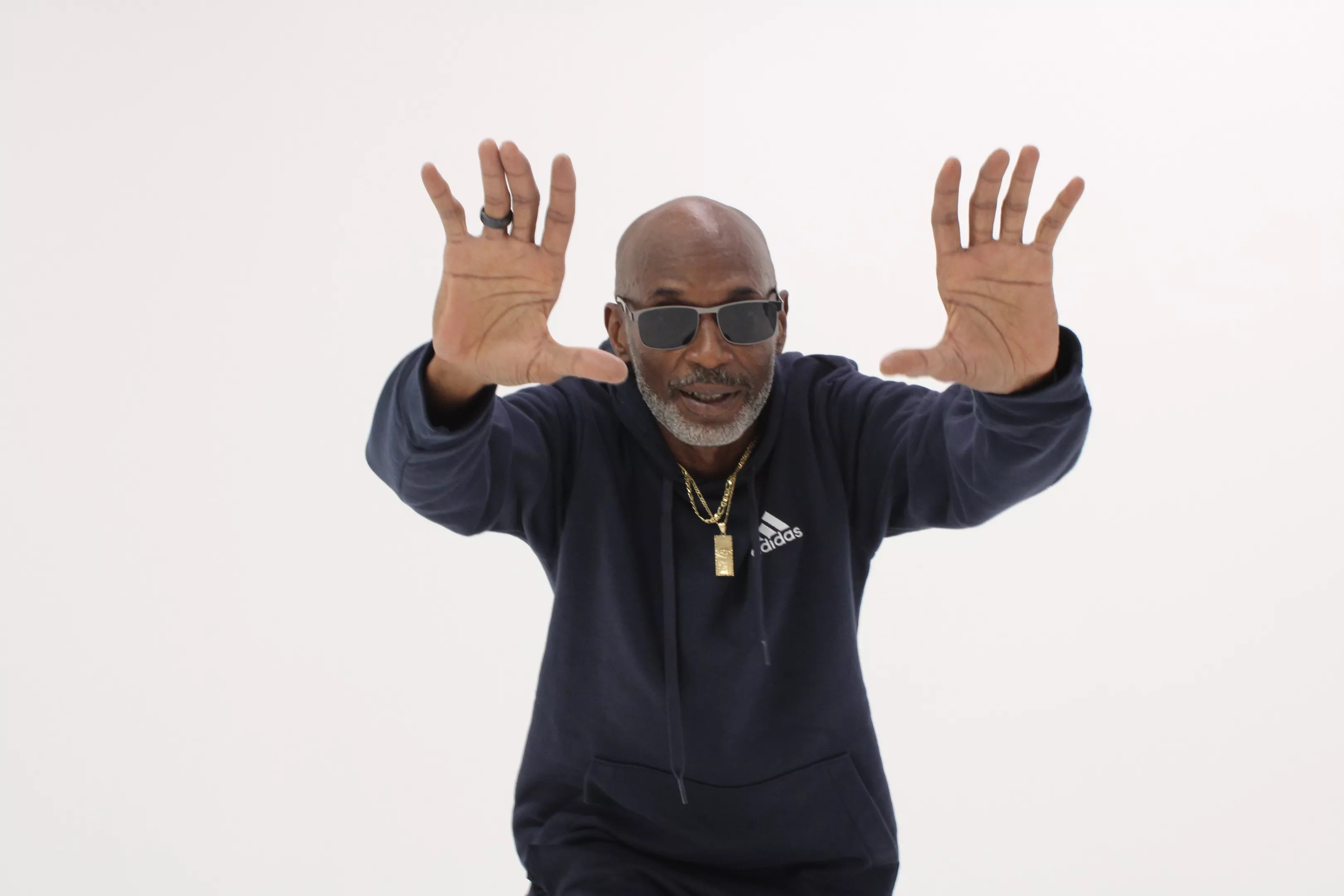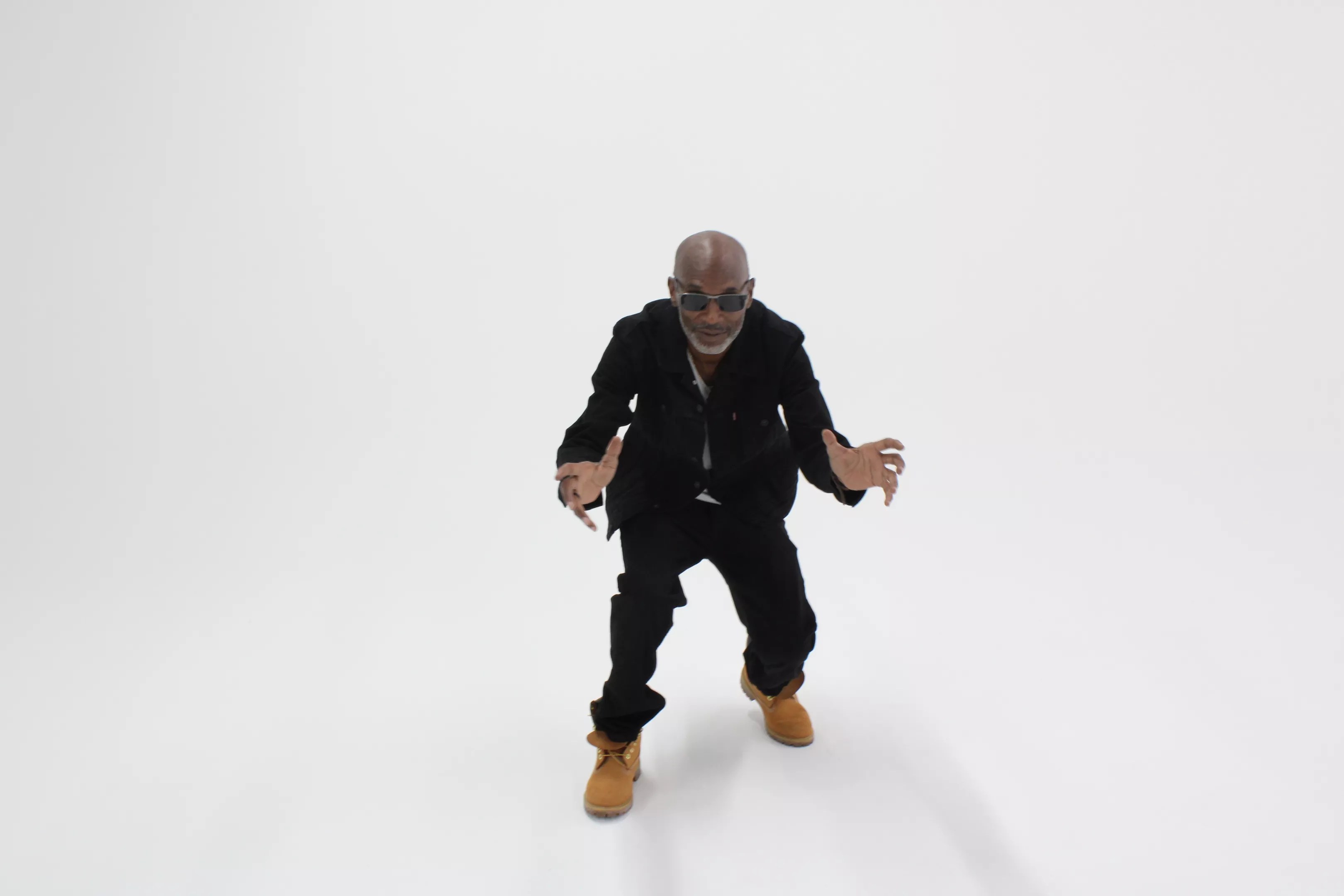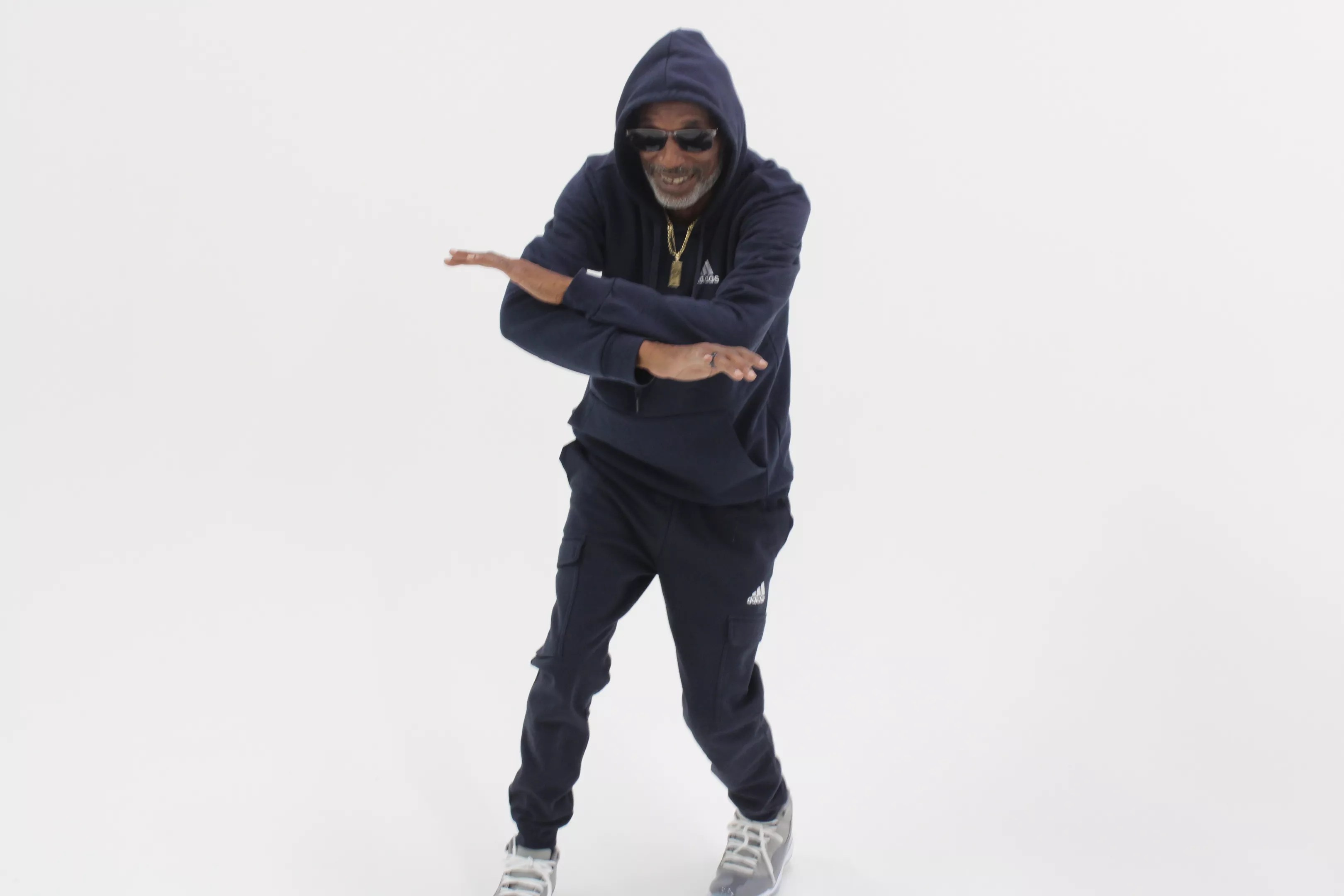
Nipplife

Audio By Carbonatix
Aurora-based rapper and producer Joe Nipper, who performs as Nipplife, considers himself a “hip-hop historian.” It’s not because of any formal studies, but from witnessing firsthand the genre’s evolution since its inception. Raised in Harlem and the Bronx, he was immersed in hip-hop culture from a young age. “You could be somebody who studied and read, but what makes me a hip-hop historian is that I was there from the beginning – from the DJs to the pause tapes, the MCs, searching for breakbeats – to where it is today,” says the 58-year-old. “There’s a lot of people who can name a hundred rappers, but I lived it.”
Growing up in New York in the ’70s and ’80s, Nipper was surrounded by hip-hop’s forefathers. At just five years old, he danced on stage with James Brown at the Apollo Theater, and he’s played drums with Pumpkin (Errol Eduardo Bedward), the first “hip-hop drummer.” By thirteen, he was an MC, and at fifteen, he was freestyling for Kool Herc, the godfather of hip-hop. “The stars were just lined up for me,” Nipper says. But by 1988, the crack epidemic was overtaking New York, and he felt compelled to leave. “I figured out a way to sneak on the Greyhound, and I would just ride to different states, because at that time, it was the big crack era,” he recalls. “A lot of my friends were getting arrested; there was a lot of turmoil in New York, and I was like, ‘You know what? Something is calling me to see the country.'”
Nipper ended up in Colorado, and found that hip-hop fans here were primarily listening to West Coast hip-hop, which he had never heard. “It was a big culture shock, but to me personally, it taught me a whole other side of the hip-hop culture, which was on the West Coast,” he says. “I didn’t know anything about N.W.A., Sir Mix-a-Lot, none of that. I was like, ‘Whoa, this is a whole other vibe.’ Being a musician, I heard the different cadences in the music and the samples.”

Nipper grew up rubbing elbows with iconic pioneers of hip-hop.
Nipplife
Back then, Nipper was told that Colorado hip-hop didn’t have its own sound. While he says that’s still the case, he adds that modern hip-hop in general is less regionally distinctive. “Now, anybody can sound like the South or whatever – it doesn’t matter now, because every state is doing that. So it’s changed, but it’s still all over the place. You have people that listen to the West, you have people that listen to the East, old school – and it’s in all demographics. For me, it’s changed for the better, because it’s opened more minds.”
But the evolution of hip-hop has had its growing pains, he admits. “I saw where gangsta rap came in and changed everything. It changed the dynamics of where hip-hop could have been. There was always violence, but not violent like it is now. That’s the only part I’m not happy with. I was always, ‘You should be able to say what you want,’ but the wisdom started kicking in, and I started to realize that I condoned a lot of stuff. Not that my music is thuggish or anything like that, but we bought into that. I’m not disrespecting people who have passed away – Tupac or any of them – but that was poison.”
Nipper laments how hip-hop took a self-destructive turn, when its influence could have instead been leveraged for good: “It’s helped a lot of people, and that’s why I wish it could turn more positive – because it really has power. The same power it has to be negative, it has that power to be positive. I think there’s going to be something soon where…people will say, ‘Hey, why are you putting out this poison?’ I think they’re going to start being held accountable for it.”
He draws a connection between the increasing negativity in hip-hop and the gradual disappearance of the hip-hop groups that dominated the late ’80s and ’90s. “It went from five-man crews, six-man crews, to three. I think a lot of that came from [knowing] one person can make the same money sometimes as four people. They figure, ‘I’ll just be the rapper, and I can make it all myself.’ Everybody wants to be the one to shine rather than start out as a group and then spread out,” he says. “I would love to put five females together, five guys, or a crew with five different nationalities. Can you imagine?”
Another foundational element of hip-hop that’s gone by the wayside is off-the-dome freestyle. In his 58 years, Nipper has only written one rhyme, and that was actually borrowed from a middle school classmate, Robbie Rock. “I would bang on the desk, and he would rhyme. That was the first time I kind of heard the rhymes. And I said, ‘Yo, make me one.’ It was ‘Hello, my mellows, my name is Robbie, transmitted to you from a third galaxy,’ and I just switched my name. That was the rhyme that got me in all these crews. I just had one rhyme! When I battled Slick Rick, that was the one rhyme! But what I had was stage presence. I was able to move the crowd,” he says.

Nipper also does stand-up comedy, where he mostly tells stories from his youth.
Nipplife
Nipper credits his rhythm-based freestyle skills to Mark the 45 King, the DJ in one of his first crews, as a youth who first taught him to “ride the beat.”
“The first crew I was in wasn’t even named, but I called it Sonic Sound. The guy from that crew was Mark the 45 King. He produced ‘Stan,’ by Eminem, and ‘Hard Knock Life,’ by Jay-Z. When I came to them with that one rhyme, I was way off beat. I had never done it to actual music,” he recalls. “I didn’t understand what they were trying to tell me, but they were trying to say, ‘You gotta feel it.’ I did it two more times, and on the third time, I nailed it. I figured out how to ride the beat, and that’s what makes my freestyles sound good.”
Because Nipper came of age in the era of the true freestyle, he finds it tedious trying to write music. But when he just lets it flow, he can make upwards of ten songs a night. “What happens now is, I can write, but once I say it, it’s stale to me. Every song I make, I make the music and I go right in there,” he says. He spends a lot of time in the studio, releasing three albums this year that highlight his old-school flow: Ican… Wonderful Musical, All I Need and 64.
He’s quick to point out that when current rappers claim to freestyle, most of the time it’s at least partially written or rehearsed. “The meaning of freestyle when I was coming up was, you didn’t write. Nothing was written at all. So now I gotta say I’m the king of the one-take freestyle ‘off the top,’ because it’s not like I rehearsed it,” he explains. “How are you freestyling when you’re looking at your phone? Those are written. It’s an art, as well. That’s my gimmick now.”
The most unpredictable change in hip-hop by far, he says, has been its mainstream popularity and presence worldwide. “We had no idea that it would be where it’s at now. We had no clue,” Nipper says. “Nobody believed there would be commercials with little kids rapping. In almost every commercial you put on, there’s an old breakbeat we used to rap over. It’s huge.”
The exponential growth of hip-hop isn’t slowing down any time soon, and neither is Nipper. “There’s not a lot of people from my era, unknown people, not famous people, releasing as much music as I am. I beat lung cancer in 2019, so I had no idea I’d still be able to do what I’m doing. I’m actually going for the Guinness Book of Records, as the oldest rapper with the most recordings,” he says. “I just am hip-hop.”
To learn more about Nipper and his music, visit nipplife.com.